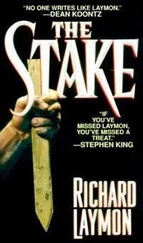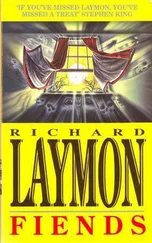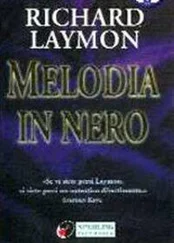Richard Laymon - Island
Здесь есть возможность читать онлайн «Richard Laymon - Island» весь текст электронной книги совершенно бесплатно (целиком полную версию без сокращений). В некоторых случаях можно слушать аудио, скачать через торрент в формате fb2 и присутствует краткое содержание. Город: New York, Год выпуска: 2002, ISBN: 2002, Издательство: Leisure Book, Жанр: Ужасы и Мистика, на английском языке. Описание произведения, (предисловие) а так же отзывы посетителей доступны на портале библиотеки ЛибКат.
- Название:Island
- Автор:
- Издательство:Leisure Book
- Жанр:
- Год:2002
- Город:New York
- ISBN:0-8439-4978-3
- Рейтинг книги:5 / 5. Голосов: 1
-
Избранное:Добавить в избранное
- Отзывы:
-
Ваша оценка:
- 100
- 1
- 2
- 3
- 4
- 5
Island: краткое содержание, описание и аннотация
Предлагаем к чтению аннотацию, описание, краткое содержание или предисловие (зависит от того, что написал сам автор книги «Island»). Если вы не нашли необходимую информацию о книге — напишите в комментариях, мы постараемся отыскать её.
Island — читать онлайн бесплатно полную книгу (весь текст) целиком
Ниже представлен текст книги, разбитый по страницам. Система сохранения места последней прочитанной страницы, позволяет с удобством читать онлайн бесплатно книгу «Island», без необходимости каждый раз заново искать на чём Вы остановились. Поставьте закладку, и сможете в любой момент перейти на страницу, на которой закончили чтение.
Интервал:
Закладка:
Richard Laymon
ISLAND
This book is dedicated to Frank Coghe,
a legend in his own time. When they made you,
Cog, they broke the mold.
Introduction
THE FOX IN THE CHICKEN SUIT
by Dean Koontz
On February 14, 2001, at far too young an age, Richard Laymon left this world for another. Within a large community of suspense, horror, mystery, and fantasy writers, news of his death was received with shock and grief. His writing was edgy, often disturbing, and definitely not for everyone, but even those colleagues who didn’t read Richard Laymon’s work nevertheless acutely felt the loss of him because he was such a reliably cheerful, forthcoming, likable man. Years before we lost Dick, I wrote this tribute to him for a special occasion. It made him laugh then, and in rereading it recently, I smiled because it reminded me of how amiable Dick was. Therefore:
At the moment that Richard Laymon was born, a mysterious rain of one million frogs fell on Cleveland, Ohio, and over seven hundred citizens were severely injured by large plummeting amphibians. In Tibet, at that same hour, a holy man suddenly levitated twelve feet off his monastery floor and, seized by some strange entity, began barking like a dog and shouting the word “gravy” in seventy-nine languages. While the holy man was aloft and shrieking, two archaeologists, at work outside Jerusalem, unearthed the altar of a third-century devil-worshipping cult on which was carved an image of Satan that bore an uncanny resemblance to the Warner Brothers’ cartoon character Yosemite Sam. Even as the doctor slapped Richard Laymon’s butt and the author’s first cry echoed through the hospital delivery room, a group of nuns in Boston inexplicably fell into a ferocious hysteria and, racing through the streets of that city, set fire to anyone they encountered who was named “Herman.” In London, the queen’s favorite feathered hat exploded for no good reason, causing no harm to her august personage but putting her in such a foul mood that, forgetting what century she was in, she ordered the royal hatmaker beheaded. In zoos all around the planet, elephants broke out of their enclosures and squashed anything cute and furry that they could find; for a few minutes, bears addressed startled onlookers in clear, grammatical English, speaking with better diction and projection than the greatest stage actor who ever lived—although according to all reports, none had anything interesting to say; and gorillas performed entrechats with a grace that made thousands of ballerinas weep. Perhaps the greatest mystery of that fateful day was the bewildering presence of so many ballerinas in so many zoos.
Then the world settled into its usual routines. Frogs stopped falling from the sky and were to be seen only in French restaurants where they belonged. The Tibetan holy man floated back to earth, stopped shrieking about gravy, and returned to his usual pursuits: prayer, meditation, and betting on the ponies. Wiping the bloodied remains of squashed bunny rabbits off their” thunderously huge feet, the elephants ambled back into their enclosures. Their passion for ballet forgotten, the gorillas just ate bananas and stood around scratching their asses. Calm ensued. Peace reigned on God’s good earth.
But all the while, Richard Laymon was quietly growing up.
With his sunny face, disarming manner, unfailing cheerfulness, and singularly good humor, he passed through high school and college as smoothly as a fox in an exceedingly convincing chicken suit could pass through a flock of Prozac-numbed hens—that is, of course, if foxes were sufficiently talented tailors to make chicken suits and if hens were able to obtain Prozac prescriptions. If you met Richard Laymon (who, for some reason I don’t fully grasp, is known as “Dick” to his friends) he would strike you as one of the most amiable men you have ever met. He is one of those guys who—were he a movie actor—would most often play the best buddy of the male star: in comedies, he would be lovable and bumbling; in romances, he would be lovable and adroit at bringing the estranged lovers back together after they had quarreled over one stupid misunderstanding or another; in police action pictures, he would be the lovable partner who would be shot stone-cold dead by the villain at the end of act two, sending the star on a flinty-eyed, tight-lipped race for justice and vengeance; in a horror movie, he would be eaten alive. Thus, he was able to appear sufficiently mild-mannered to obtain a job after college as a ninth-grade English teacher in a Catholic girls’ school. The nuns adored him—and they weren’t those crazy nuns in Boston who set fire to anyone named “Herman"; these were nice nuns. The students thought Dick was just swell, and their parents thought he was a particularly wholesome young gentleman.
But all the while, Richard Laymon was quietly writing.
Later he worked in the library at Marymount College, where he probably wore a bow tie, a jacket with leather patches on the elbows, and a look of bookish bemusement. There, I imagine, he kept the card catalog in impeccable order, dusted the shelves, staffed the lending desk, regretfully sent out overdue notices, murmured of Socrates and Plato to his patrons, and gently reminded boisterous students to whisper at all times. If he were a fox, he would have sewn for himself a chicken suit so thoroughly convincing that any farmer would have reached under him in search of eggs.
He married Ann in 1977, as sweet-tempered and gracious a lady as you would ever hope to meet. In 1979, Ann gave birth to Kelly, a blond little girl who appeared to have been modeled after the cutest cherubim in certain paintings in the Vatican. No one could look upon this young family without smiling approvingly and feeling that all was right with the world.
In 1980, however, Richard Laymon published his first novel, The Cellar. No doubt every nun who had ever known him began to pray for his soul, and every library patron who had ever been alone with him among the stacks at Marymount felt a chill along his or her spine, and all the Catholic school girls to whom he’d taught English said, “Hey, cool!” The Cellar was the scariest, fastest-paced, darkest, just-plain-nastiest thriller in years. In that debut, he established a style that has often been imitated but never equaled: plunging, pull-out-all-the-stops, no-limits, in-your-face, shock-packed, take-off-the-top-of-your-head, gonzo suspense and horror that will appall some people and exhilarate others.
Over the years, in thirty novels and numerous short stories, Dick has never compromised his unique vision in order to please the marketplace, yet he has found an audience of devoted readers. Curiously, as I write this, he is better known and more widely admired in England than here in his native country. This situation arose, I believe, because many American editors favored the light diet of “quiet horror” rather than the meaty stew that Dick cooked up, and along with the good novels of quiet horror, they shoveled into bookstores uncountable self-conscious pseudo-literary exercises in obscurantism by writers who had yet to learn correct grammar and syntax, books that gave quiet horror—all horror—a bad name. Those unreadable tomes, combined with the usual yearly total of 3,568 vampire novels, virtually destroyed the genre on these shores even while Dick was trying to build a career doing something different from the work of others.
He has survived, however, and prospered, because a significant number of readers like a bowl of stew in their literary diet from time to time. By being politically incorrect in his fiction and singularly clear-eyed and cold in his portrayal of evil, he writes stories that read like the work of no one else—which is essential if a writer is to stay afloat in the sea of sameness that is modern publishing. Now that he has written so many books, however, he has revealed himself and can never again quite squeeze all the way back into that chicken suit.
Читать дальшеИнтервал:
Закладка:
Похожие книги на «Island»
Представляем Вашему вниманию похожие книги на «Island» списком для выбора. Мы отобрали схожую по названию и смыслу литературу в надежде предоставить читателям больше вариантов отыскать новые, интересные, ещё непрочитанные произведения.
Обсуждение, отзывы о книге «Island» и просто собственные мнения читателей. Оставьте ваши комментарии, напишите, что Вы думаете о произведении, его смысле или главных героях. Укажите что конкретно понравилось, а что нет, и почему Вы так считаете.












